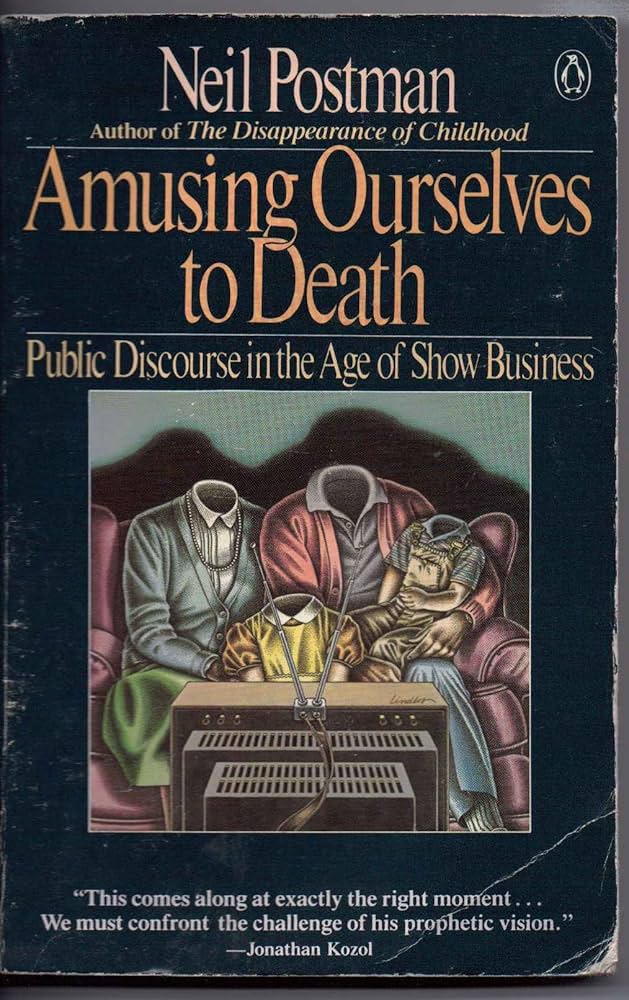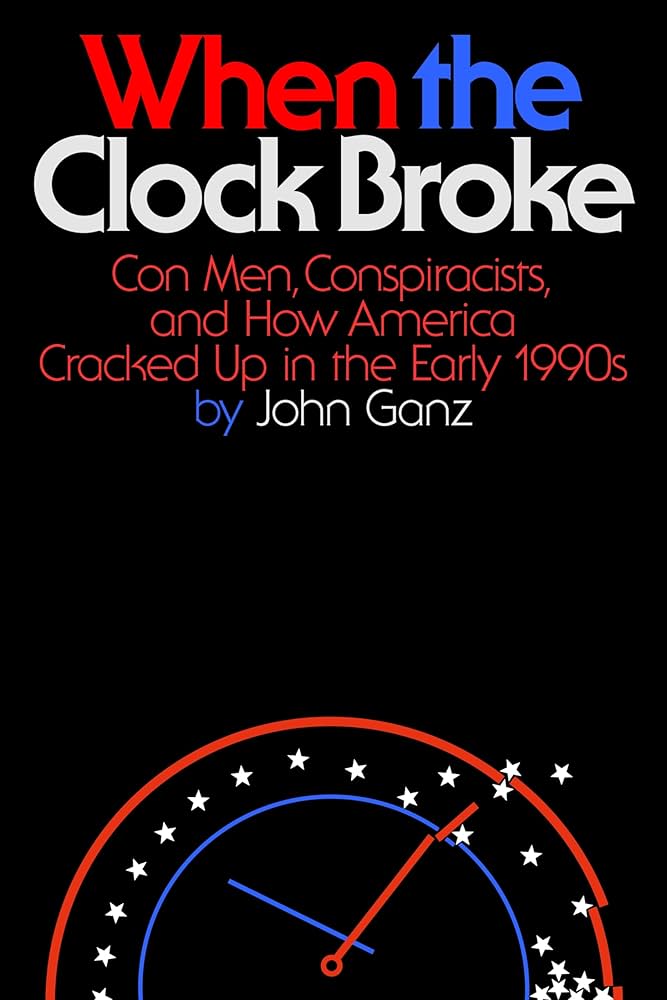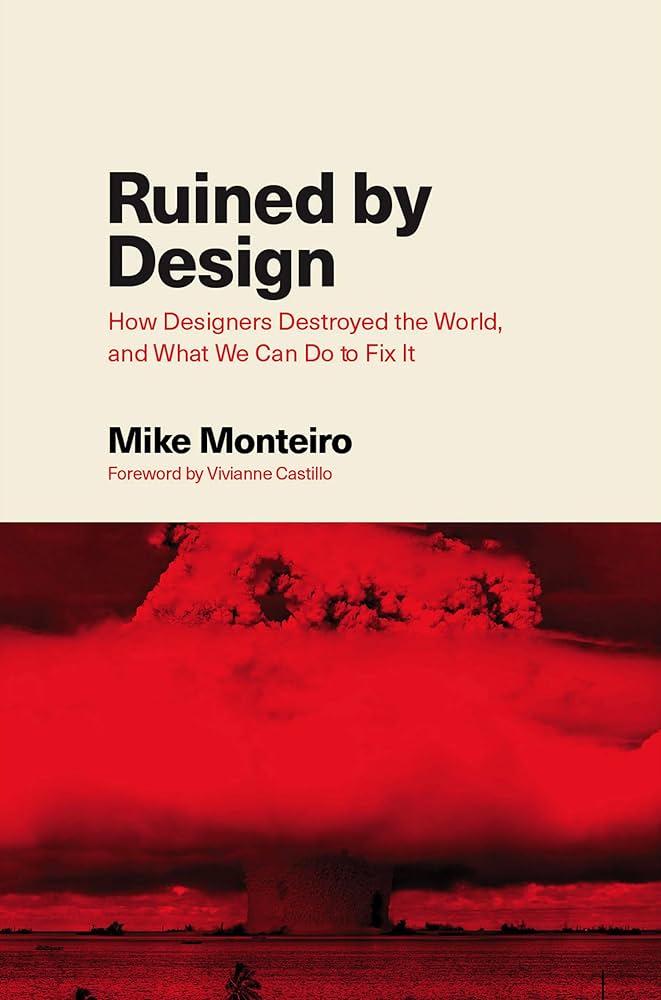The thesis:
It is my intention in this book to show that a great media-metaphor shift has taken place in America, with the result that the content of much of our public discourse has become dangerous nonsense.
This was published in 1985! Postman’s ideas still work, and in many cases they’re more convincing than ever. I read some of his stuff for my undergrad in the late 90’s, and misread it as Luddite grouchiness (and not Luddite in the proper sense either).
This book holds up extremely well. I stopped several times to re-read sections, blown away at how relevant they still are. The second half of the book shows its’ age a little — chapters about televangelists and TV commercials seem a bit quaint, but they are still worth reading for the support they give to other subjects (e.g. political advertising).
The things that he wrote about how the medium (not the technology) of television affects our societal knowledge and engagement have only been put into hyperdrive by the internet.
He’s not anti-technology, and he’s not anti-entertainment. In fact:
…I appreciate junk as much as the next fellow, and I know full well that the printing press has generated enough of it to fill the Grand Canyon to overflowing. Television is not old enough to have matched printing’s output of junk.
The issue is how the technology affects the user and informs the content. Lots of cognitive research shows how passive consumption (ie. watching video) works differently than active consumption (ie. reading, discussing). Nicholas Carr dissects this well in The Shallows (which might be the book that put me on my Postman kick). Postman doesn’t take the that route, but makes the point using history and culture.
To be unaware that a technology comes equipped with a program for social change, to maintain that technology is neutral, to make the assumption that technology is always a friend to culture is, at this late hour, stupidity plain and simple. Moreover, we have seen enough by now to know that technological changes in our modes of communication are even more ideology-laden than changes in our modes of transportation. Introduce the alphabet to a culture and you change its cognitive habits, its social relations, its notions of community, history and religion. Introduce the printing press with movable type, and you do the same. Introduce speed-of-light transmission of images and you make a cultural revolution.
Without a vote. Without polemics. Without guerrilla resistance.
This is true regardless of the technology in question, and it really is the key to his whole way of thinking. Which is actually very much in line with Brian Merchant’s Luddite history.








